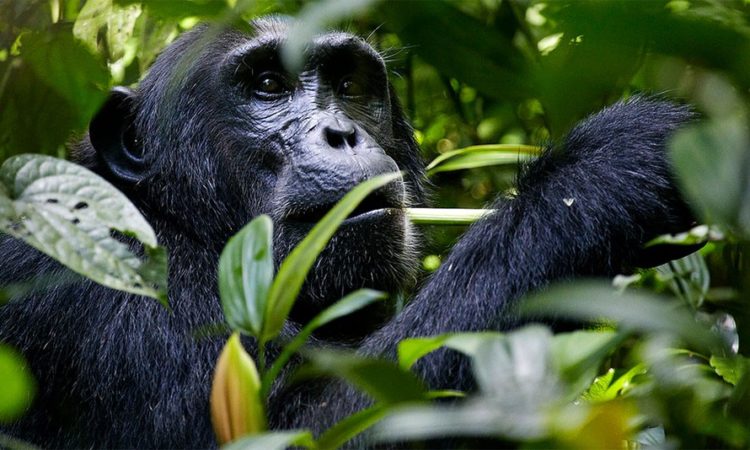Conservation Efforts in Kibale National Park
Kibale National Park, located in western Uganda, is renowned for its extraordinary biodiversity, including over 1,500 chimpanzees and thirteen other primate species, as well as an extensive array of birds, butterflies, and plant life. Beyond its appeal as a safari destination, Kibale is also a focal point for conservation efforts aimed at protecting its unique ecosystems. The park’s conservation initiatives highlight the importance of preserving both wildlife and the surrounding communities that depend on the forest, demonstrating how sustainable management can balance human needs with ecological protection.
Protecting Primate Populations
At the heart of Kibale’s conservation efforts is the protection of its primate populations, particularly chimpanzees. The park implements rigorous anti-poaching measures, including patrols by trained rangers who monitor wildlife, track illegal activities, and maintain the integrity of forest habitats. Research programs, often in collaboration with international universities and conservation organizations, monitor primate behavior, population dynamics, and health. These studies not only enhance scientific understanding but also inform management strategies that ensure the long-term survival of these species.
The habituation of chimpanzee groups for research and tourism purposes is another critical aspect of conservation. By carefully habituating chimpanzees to human presence, researchers and guided tourists can observe them without disrupting their natural behaviors. This approach balances ecological study with sustainable tourism, ensuring that wildlife interactions remain both ethical and educational.
Habitat Conservation and Reforestation
Kibale’s conservation efforts extend beyond individual species to encompass the preservation of entire habitats. The park is actively involved in reforestation projects and the management of forest corridors that connect Kibale with surrounding reserves. These corridors allow wildlife to move freely, maintain genetic diversity, and reduce human-wildlife conflict in neighboring communities.
Community engagement is central to habitat conservation. Local residents are educated on sustainable farming techniques, forest stewardship, and the benefits of ecotourism. By providing alternative livelihoods and promoting awareness, the park helps reduce pressure on forest resources while fostering a sense of shared responsibility for conservation.
Community-Based Initiatives
The relationship between Kibale and its surrounding communities exemplifies the integration of conservation and human development. Programs such as the Bigodi Community Sanctuary enable locals to participate in eco-tourism, including guided walks, craft production, and cultural exchanges. Revenue generated from these activities is reinvested in education, healthcare, and infrastructure projects, creating tangible incentives for conservation.
By empowering communities and offering sustainable economic opportunities, Kibale ensures that conservation is not perceived as a restriction but as a shared benefit. This collaborative model strengthens the connection between people and nature, fostering long-term commitment to protecting the park.
Research and Monitoring Programs
Kibale serves as a hub for research on primate behavior, forest ecology, and biodiversity conservation. Long-term studies have provided invaluable insights into chimpanzee social structures, feeding patterns, and health, while also tracking other primates and bird species. Monitoring programs identify threats such as habitat degradation, disease outbreaks, and human encroachment, enabling timely interventions to safeguard the ecosystem.
Research conducted within Kibale has also informed broader conservation policies across Uganda, influencing management practices in other national parks and forest reserves. By integrating scientific study with practical conservation measures, Kibale has become a model for evidence-based wildlife management.
Challenges and Ongoing Efforts
Despite significant progress, Kibale faces ongoing challenges. Encroachment from agricultural expansion, illegal logging, and poaching continue to pose threats to the park’s biodiversity. Climate change adds further uncertainty, affecting rainfall patterns and forest composition. In response, park authorities and conservation partners continually adapt strategies, combining enforcement, community engagement, and ecological restoration to address emerging threats.
Conservation efforts in Kibale National Park are multifaceted, addressing wildlife protection, habitat preservation, community involvement, and scientific research. The park exemplifies how sustainable management can safeguard one of Uganda’s most treasured ecosystems while supporting local communities and promoting education and research. Visitors to Kibale not only witness its remarkable biodiversity but also contribute indirectly to these ongoing efforts through ecotourism.
For travelers wishing to experience Kibale’s wildlife and natural beauty while supporting conservation initiatives, it is recommended to book with Cyro Tours & Travel. Their expertise in organizing guided tours, securing permits, and facilitating ethical wildlife encounters ensures a seamless and enriching experience, allowing visitors to enjoy the park while contributing to its preservation.



